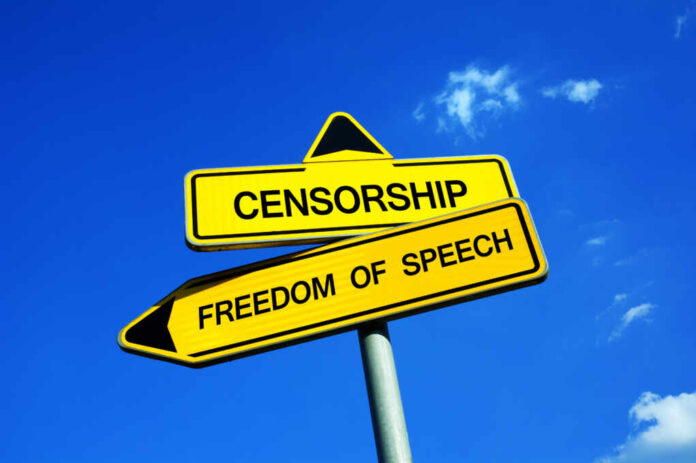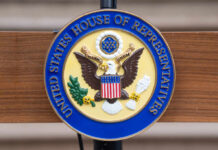
A major case before the Supreme Court alleging that the federal government coerces social media companies about content regulation is more about control than coercion, a former intelligence analyst warned.
Stella Morabito, a political writer who previously worked in the intelligence field and has experience with communist media and propaganda initiatives, pointed out in an April 5 article published in The Federalist that the high-profile censorship case, Murthy v. Missouri, is as much related to governmental control of everyday conversations as it is to social media companies censoring conservative views.
Attacks on #freespeech are attacks on #privatelife. We must think of the #firstamendment and #Murthy case in that context. My piece today @FDRLST https://t.co/sKCKQZtHyD
— Stella Morabito (@Stella_Morabito) April 5, 2024
Morabito begins her article by noting that censorship is inseparable from loneliness “because political censorship is always designed to cut us off” and “stop us from speaking openly to others.” She added that Murthy is “not a narrow case” that only involves the relationship between government agency efforts to cut back on “misinformation” appearing on third party platforms.
Rather, she argued, the case is about the government’s “enabling” of what she called “an enormous censorship-industrial complex” that threatens to control the conversations and relationships of individual American citizens. Morabito continued, pointing out that “any” ruling from the nation’s highest court that is “in favor of the government” would inevitably lead to the “undermining” of First Amendment rights to free speech.
She added that this right, guaranteed to every citizen in the United States Constitution, is “the first line of defense against tyranny” due to its use as a natural method of communication, relationship building and problem solving. Morabito concluded her article by emphasizing the role of the First Amendment in preempting the reality that “governments cannot and should not be trusted.”
She noted that individual citizens are “being silenced” thanks to the relationship between government agencies, corporations and Big Tech but that the right to free speech in the First Amendment protects Americans from this individual censorship and must be protected.
Murthy v. Missouri was filed by the states of Missouri, Louisiana and several individuals who are seeking to challenge the Biden administration and its relationship with social media companies. The plaintiffs have accused the federal government of censoring views and information that do not align with the administration’s political agenda, including conservative opinions on alternative COVID-19 treatments and protocols.
On March 18, the Supreme Court heard oral arguments in the case. During the arguments, conservative Justice Samuel Alito presented various examples that could be viewed as censorship, to which the government’s attorney responded by defending increased government involvement in COVID-related content as acceptable due to the unique situation brought on by the pandemic.



























